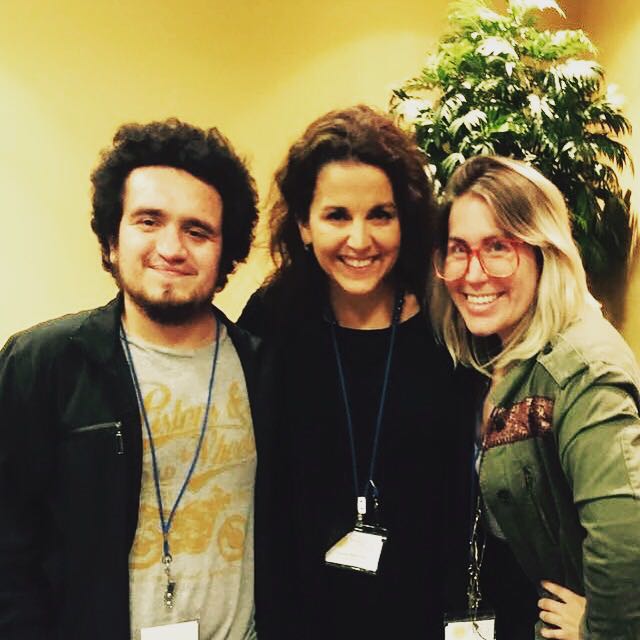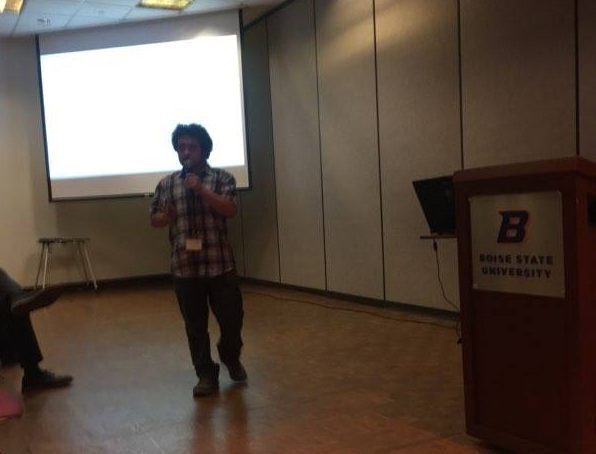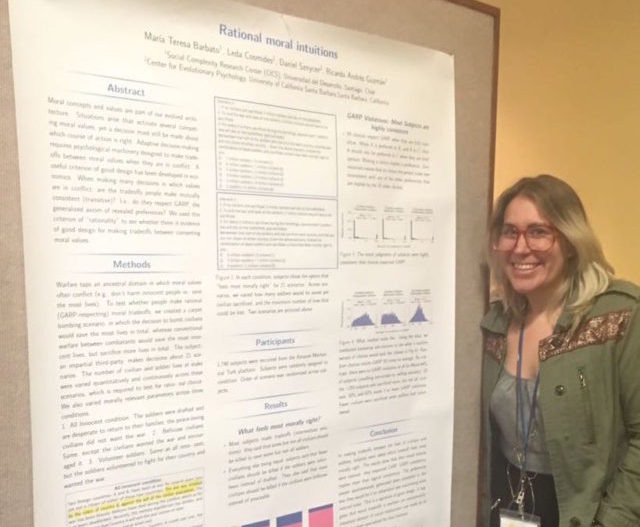[CICS on Tour] Two PhD investigations participated in the Human Behavior and Evolution Society 2017
Thursday, 24 August, 2017 | NEWSJorge Castillo and María Teresa Barbato presented their works, as an exhibition and poster respectively, focused on the study of Behavior Modeling from Evolutionary Psychology. Both exhibitions were the only intervention of chileans at the meeting in Idaho, United States.

* This note is part of the DCSS student participation register at conferences, seminars and other international events.
Human Behavior and Evolution Society (HBES) is the leading international organization for the study of evolution and human behavior. In its 2017 edition, Chile was present through two students of the first generation of the Doctorate in Sciences of Social Complexity.
Jorge Castillo, mathematical civil engineer, presented the advances of the study “Complexity and Play: resource availability changes social network structure of wild bonobos”, a joint work with Isabel Behncke, Tamas David-Barret and Carlos Rodríguez-Sickert, Director of the CICS. The biologist María Teresa Barbato presented the poster “Rational Moral Intuitions”, about the research she develops with Ricardo Guzmán and Leda Cosmides.
HBES is a society that brings together all those who study the evolution of human behavior. In line with the identity of the CICS, this includes scientific perspectives covering evolutionary psychology and a range of disciplines in the social and biological sciences.

Complexity and Play: resource availability changes social network structure of wild bonobos
On his oral presentation, Castillo explains that “grooming among the bonobos does not change in periods of high and low fruit, but the game does. Therefore, there are different adaptive functions. The presentation of these results was an innovation in the circuit, since they use Game Theory as mathematics of human behavior, and we propose a different one that is Network Theory “. In this sense, it is important to emphasize the acceptance of these disruptive approaches in avant-garde conferences.
This research is part of Castillo’s thesis project that investigates how the structure of the social network changes in the sociocultural evolution and its correlate with the evolution of modern art.

Rational Moral Intuitions
Barbato’s research is based on the fact that the moral intuitions of our ancestors resolved certain conflicts and therefore must remain in our mind in a dependent way.
“Our work analyzes the rationality of moral intuitions, implying a paradigm shift: since Plato it has been argued that emotions underlie cognitive control, while moral judgment has been a conscious judgment. We wonder whether we are measuring that rationality correctly, or whether we can use methods of microenomy to determine if it is, in fact, rational. In the research we observe that in the face of a moral dilemma, independent of their motivations, the subjects respond in a rational way from the microeconomic point of view, proving that intuitions do matter “, says researcher María Teresa Barbato.
In the second part of her thesis, the biologist will study the long-term mating to identify if there is a moral in that type of social interaction. Also in a disruptive way, in September, she will attend the Conference on Complex Systems 2017, where she will present her work -which does not use methodological analysis of networks- on the characterization of mental machinery.


